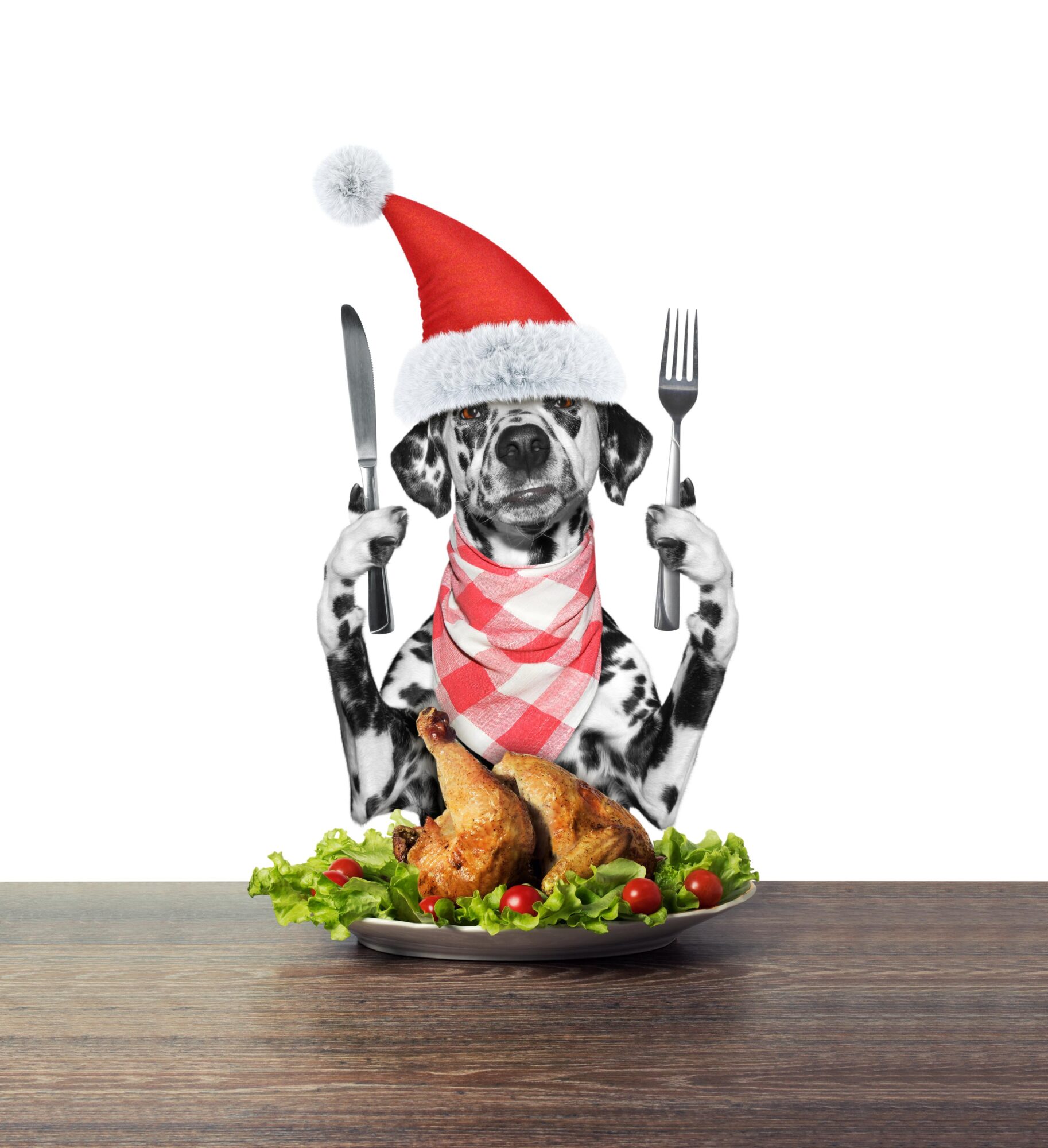Holiday Feasts and Fidos: The Hidden Threat of Pancreatitis for Dogs

The aromas of roasted turkey, creamy mashed potatoes, and fresh-baked sweets beckon both people and their pets to the holiday table. But before you let your dog dig in, make sure what you’re feeding Fido is safe. Some of our favorite holiday dishes contain high levels of fat, salt, or other ingredients that can cause pancreatitis in dogs or kidney disease in dogs.
Start things off on the right paw this holiday season by practicing diligent pet safety, particularly when it pertains to holiday foods. Read on for important information from our team at The Vet Gal and Guys.
Understanding Pancreatitis in Dogs
Your pet’s pancreas produces important digestive enzymes as well as insulin, and when the organ becomes inflamed, we call it pancreatitis. Many things can cause pancreatitis in dogs, including diabetes, obesity, and hypothyroidism, but the primary cause is the overindulgence in high-fat foods. A diagnosis of pancreatitis in dogs is confirmed with laboratory testing.
Pancreatitis Symptoms
Pancreatitis is a painful condition that can quickly escalate into a veterinary emergency. Please contact us or the nearest emergency veterinary center if your pet exhibits these symptoms:
- Vomiting/diarrhea
- Loss of appetite
- Abdominal pain
- Lethargy
How to Avoid Pancreatitis in Dogs
Prevention is key when it comes to pancreatitis since there is no real cure—only supportive measures. Here are some pet safety tips from our team, including answers to common questions about toxic foods for dogs.
- Establish a no-sharing rule and make your guests aware.
- Don’t leave Fido alone with the food, and keep all discarded scraps in a trash can with a secure lid.
- These are the most toxic foods for dogs and should never be shared: chocolate; grapes and raisins (can lead to kidney disease in dogs); macadamia nuts; bulb veggies like onions and garlic; uncooked yeast dough; undercooked meat; alcohol; any food containing xylitol.
- Can dogs eat peanut butter? This is a common question, and the answer is yes, as long as the peanut butter does not contain xylitol (a sugar substitute that can be toxic to animals).
- Can dogs eat turkey bones?/Can dogs eat chicken bones? This is a popular question around the holidays, and the answer is no. Bones can easily become splintered and cause injury to a dog’s mouth, throat, and stomach.
Festive Foods That Are Safe to Share
Create a festive holiday sampler platter for your pet with some steamed green beans or baby carrots (minus the butter and brown sugar!), cooked white meat with the skin removed, and a dollop of unsweetened pumpkin puree.
Tis the Season to Practice Pet Safety
We know your dog means the world to you, and we hope you and your pet have a wonderful holiday season. If we can answer any other questions about holiday pet safety or toxic foods for dogs, please feel free to contact us.



